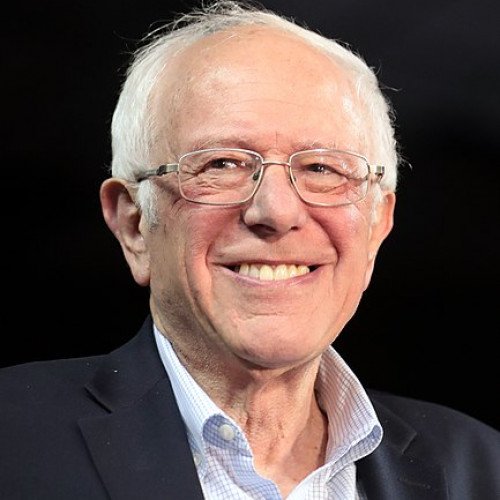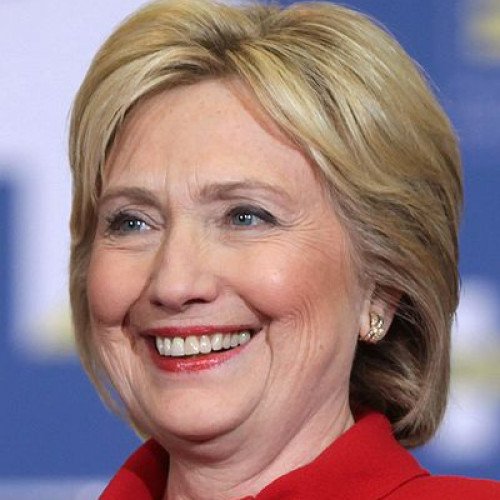Bernie Sanders VS Hillary Clinton

Bernie Sanders
Bernard Sanders (born September 8, 1941) is an American politician who has been the junior United States senator from Vermont since 2007 and as U.S. Representative for the state's at-large congressional district from 1991 to 2007. He is the longest-serving independent in U.S. congressional history, although he has a close relationship with the Democratic Party, having caucused with House and Senate Democrats for most of his congressional career. Sanders unsuccessfully sought the Democratic Party nomination for president of the United States in 2016 and 2020, finishing in second place in both campaigns. Before his election to Congress, he was mayor of Burlington, Vermont. An advocate of social democratic and progressive policies, Sanders is known for his opposition to economic inequality and neoliberalism. On domestic policy, he supports labor rights, universal and single-payer healthcare, paid parental leave, tuition-free tertiary education, and an ambitious Green New Deal to create jobs addressing climate change. On foreign policy, he supports reducing military spending, pursuing more diplomacy and international cooperation, and putting greater emphasis on labor rights and environmental concerns when negotiating international trade agreements. Sanders describes himself as a democratic socialist, supports workplace democracy, and has praised elements of the Nordic model. Some commentators have described his politics as aligned with the New Deal policies of President Franklin D. Roosevelt and left-wing populism. Sanders has been credited with influencing a leftward shift in the Democratic Party since his 2016 presidential campaign. Sanders was born into a working-class Jewish family and raised in the Brooklyn borough of New York City. He attended Brooklyn College before graduating from the University of Chicago in 1964. While a student, he was an active protest organizer for the Congress of Racial Equality as well as for the Student Nonviolent Coordinating Committee during the civil rights movement. After settling in Vermont in 1968, he ran unsuccessful third-party political campaigns in the early to mid-1970s. He was elected mayor of Burlington in 1981 as an independent and was reelected three times. He won election to the U.S. House of Representatives in 1990, representing Vermont's at-large congressional district, later co-founding the Congressional Progressive Caucus. He served as a U.S. Representative for 16 years before being elected to the U.S. Senate in 2006. Sanders was reelected to the Senate in 2012 and 2018. Sanders was a major candidate for the Democratic presidential nomination in 2016 and 2020. Despite initially low expectations, his 2016 campaign generated significant grassroots enthusiasm and funding from small-dollar donors, carrying Sanders to victory against eventual nominee Hillary Clinton in 23 primaries and caucuses before he conceded in July. In 2020, Sanders's strong showing in early primaries and caucuses briefly made him the front-runner in a historically large field of Democratic candidates. In April 2020, he conceded the nomination to Joe Biden, who had won a series of decisive victories as the field narrowed. Sanders endorsed Clinton and Biden in their general election campaigns against Donald Trump while continuing his efforts to move the Democratic Party in a more progressive direction.
Statistics for this Xoptio

Hillary Clinton
Hillary Diane Rodham Clinton (née Rodham; born October 26, 1947) is an American politician, diplomat, lawyer, writer, and public speaker who served as the 67th United States secretary of state from 2009 to 2013, as a United States senator from New York from 2001 to 2009, and as First Lady of the United States from 1993 to 2001. Clinton became the first woman to be nominated for president of the United States by a major political party when she won the Democratic Party nomination in 2016. She was the first woman to win the popular vote in an American presidential election, which she lost to Donald Trump. Raised in the Chicago suburb of Park Ridge, Clinton graduated from Wellesley College in 1969 and earned a Juris Doctor from Yale Law School in 1973. After serving as a congressional legal counsel, she moved to Arkansas and married future president Bill Clinton in 1975; the two had met at Yale. In 1977, she co-founded Arkansas Advocates for Children and Families. She was appointed the first female chair of the Legal Services Corporation in 1978 and became the first female partner at Little Rock's Rose Law Firm the following year. The National Law Journal twice listed her as one of the hundred most influential lawyers in America. Clinton was the first lady of Arkansas from 1979 to 1981 and again from 1983 to 1992. As First Lady of the United States, Clinton advocated for healthcare reform. In 1994, her major initiative—the Clinton health care plan—failed to gain approval from Congress. In 1997 and 1999, Clinton played a leading role in advocating the creation of the State Children's Health Insurance Program, the Adoption and Safe Families Act, and the Foster Care Independence Act. Clinton advocated for gender equality at the 1995 UN conference on women. Her marital relationship came under public scrutiny during the Lewinsky scandal, which led her to issue a statement that reaffirmed her commitment to the marriage. In 2000, Clinton was elected as the first female senator from New York. She was re-elected in 2006 and chaired the Senate Democratic Steering and Outreach Committee from 2003 to 2007. During her Senate tenure, Clinton advocated for medical benefits for first responders whose health was damaged in the September 11 attacks. She supported the resolution authorizing the Iraq War in 2002 but opposed the surge of U.S. troops in 2007. In 2008, Clinton ran for president but was defeated by eventual winner Barack Obama in the Democratic primaries. Clinton was U.S. secretary of state in the first term of the Obama Administration from 2009 to 2013. During her tenure, Clinton established the Quadrennial Diplomacy and Development Review. She responded to the Arab Spring by advocating military intervention in Libya but was harshly criticized by Republicans for the failure to prevent or adequately respond to the 2012 Benghazi attack. Clinton helped to organize a diplomatic isolation and a regime of international sanctions against Iran in an effort to force it to curtail its nuclear program; this effort eventually led to the multinational JCPOA nuclear agreement in 2015. Her use of a private email server when she was Secretary of State was the subject of intense scrutiny; while no charges were filed against Clinton, the email controversy was the single most covered topic during the 2016 presidential election. Clinton made a second presidential run in 2016. After winning the Democratic nomination, she ran in the general election with Virginia senator Tim Kaine as her running mate. Clinton lost the presidential election to Republican opponent Donald Trump in the Electoral College despite winning a plurality of the popular vote. Following her loss, she wrote her third memoir, What Happened, and launched Onward Together, a political action organization dedicated to fundraising for progressive political groups. She is the current chancellor of Queen's University Belfast in Belfast, Northern Ireland.